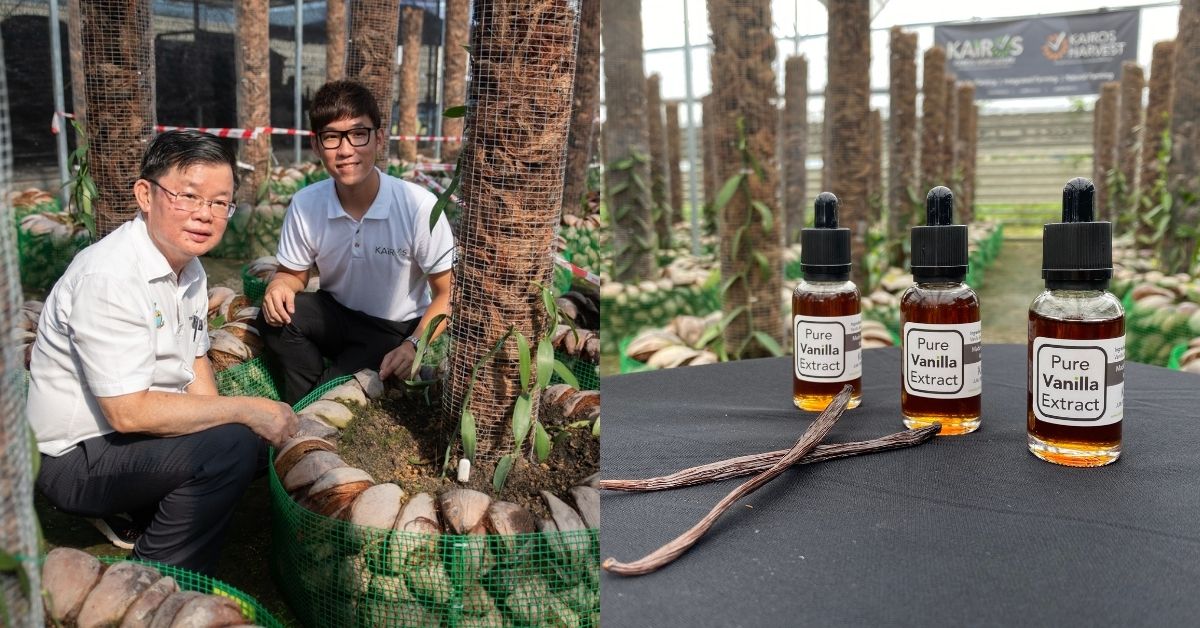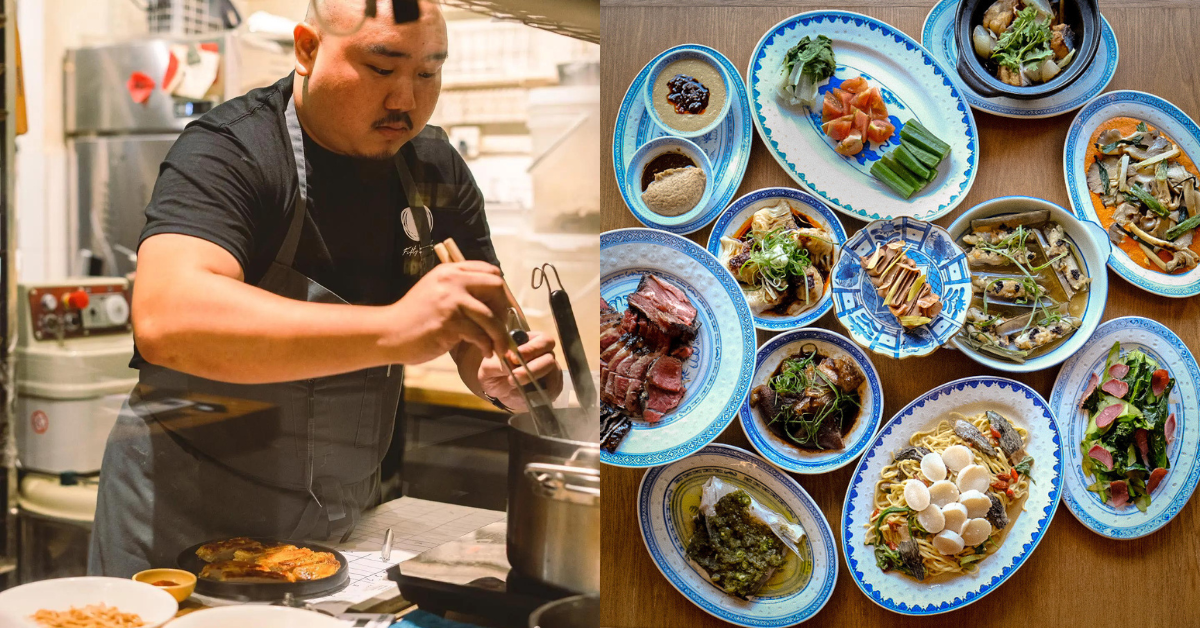One of the latest trends in agriculture may be vanilla cultivation, where high-value vanilla crops sales have gone up to RM6 billion in 2018 globally. In fact, SEA alone has transacted more than RM600 million in vanilla.
That’s according to Kairos Agriculture, a vanilla farm in Penang. Though, they’re faced with a tiny issue: Malaysia’s climate isn’t a suitable environment to grow vanilla plants.
“One of the biggest challenges that we face to grow vanilla here in Penang is the plants themselves need a cooling period,” explained Ezra, the farm’s Managing Director to Vulcan Post.
“They need to adapt to the environment as they are quite sensitive compared to the other plants and take time to stabilise themselves in order to grow healthily.”
Hence, the Penang based farm is employing agritech solutions to represent Malaysia in entering the vanilla cultivation market.
Controlling The Weather

Kairos started their farming journey in Sarawak planting mushrooms and bananas, which played a part in how they got into vanilla farming.
Noticing the organic waste from the farm’s expired mushroom logs that were left aside, the team tried to convert it into vermicompost. Vermicompost is where worms can use green waste to create water-soluble nutrients that can be repurposed as organic fertiliser and soil conditioner.
The Kairos team eventually used it to plant vanilla, which to their surprise, worked. Upon testing their vanilla pods at a Japanese flavouring company, the product was praised for its world trade quality; the land of the rising sun wanted more of it.
“Unfortunately our produce in East Malaysia is not able to meet the demand requested from Japan. That was why we started the vanilla cultivation on a larger scale with land granted from the Penang government,” said Ezra.
With an aim to make Penang known as Malaysia’s vanilla plantation hub, Kairos needed a farm with AI to control the vanilla’s production. But being one of the pioneers in this method of mass growing the edible flower, they lacked the knowledge in how to build the relevant technologies.
Another challenge present was the infrastructure which was new to the market back then. So, the tech team had to go through vigorous trial and error to enhance the automation required for their smart farm.
With the help of the researchers, an automatic misting system was set up. It would be activated when the weather is too hot and the humidity is too low.

On top of controlling the farm’s weather remotely, the tech also prevents water wastage as it’s only activated when vital conditions are met.
“In addition, we are exploring the spectrum to control pests and fungi, which will also help the plants’ flowering. However we believe healthy plants need enough rest, so we do not stress the plant unnecessarily,” added Ezra.
The team also collects data from sensors in the farm so partners in University Science Malaysia can analyse and interpret the information. These researchers will then come up with strategic and operational decisions to enhance the farm further.
More Pods With Tech

By relying on traditional farming methods alone, the average yield a 2-acre vanilla farm can generate is around 700kg of cured pods. Kairos’ smart farm is able to raise that by up to 43%, even more so with their 6 acres of land.
Their products come in the form of vanilla extract and pods, most commonly demanded by F&B establishments like bakeries and fine dining restaurants. With the exception of F&B, they also have clients from the beauty sector who use their vanilla extract for premium cosmetics and fragrances.
On top of supplying vanilla products to these industries, Kairos is also an exporter to Japan and soon China. The latter is currently testing their vanilla’s quality.
“Other than foreign countries, we also aim to supply local food processing companies that inquire for a few tons of vanilla pods yearly,” hoped Ezra.
“With our current farm size, we are aiming to produce 1 ton of vanilla pods per year, with a revenue of approximately RM1.5 million.”

Moving forward, Kairos plans to develop their farm into an eco-tourism hub that will consist of a farm-to-table café, outdoor aquaponics farm, etc. For now, they already have a vanilla themed café available on their land.
If their farm is able to grow and export on a large scale with more farms following in suit, we could see the potential of vanilla becoming one of Malaysia’s key exports to benefit the economy. This will likely be a growing industry to watch out for in years to come.
- You can learn more about Kairos Agriculture here.
- You can read about more startups we’ve covered here.
Featured Image Credit: Chief Minister of Penang and Ezra Tan, Managing Director of Kairos Agriculture









